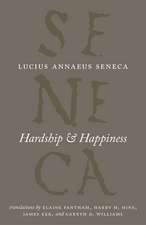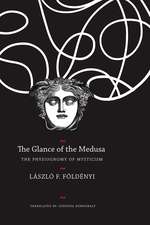Torture and Dignity: An Essay on Moral Injury
Autor J. M. Bernsteinen Limba Engleză Paperback – 27 aug 2020
In this unflinching look at the experience of suffering and one of its greatest manifestations—torture—J. M. Bernstein critiques the repressions of traditional moral theory, showing that our morals are not immutable ideals but fragile constructions that depend on our experience of suffering itself. Morals, Bernstein argues, not only guide our conduct but also express the depth of mutual dependence that we share as vulnerable and injurable individuals.
Beginning with the attempts to abolish torture in the eighteenth century, and then sensitively examining what is suffered in torture and related transgressions, such as rape, Bernstein elaborates a powerful new conception of moral injury. Crucially, he shows, moral injury always involves an injury to the status of an individual as a person—it is a violent assault against his or her dignity. Elaborating on this critical element of moral injury, he demonstrates that the mutual recognitions of trust form the invisible substance of our moral lives, that dignity is a fragile social possession, and that the perspective of ourselves as potential victims is an ineliminable feature of everyday moral experience.
Beginning with the attempts to abolish torture in the eighteenth century, and then sensitively examining what is suffered in torture and related transgressions, such as rape, Bernstein elaborates a powerful new conception of moral injury. Crucially, he shows, moral injury always involves an injury to the status of an individual as a person—it is a violent assault against his or her dignity. Elaborating on this critical element of moral injury, he demonstrates that the mutual recognitions of trust form the invisible substance of our moral lives, that dignity is a fragile social possession, and that the perspective of ourselves as potential victims is an ineliminable feature of everyday moral experience.
Preț: 252.44 lei
Nou
Puncte Express: 379
Preț estimativ în valută:
48.31€ • 49.91$ • 40.21£
48.31€ • 49.91$ • 40.21£
Carte disponibilă
Livrare economică 04-18 martie
Livrare express 15-21 februarie pentru 37.22 lei
Preluare comenzi: 021 569.72.76
Specificații
ISBN-13: 9780226708874
ISBN-10: 022670887X
Pagini: 392
Dimensiuni: 152 x 229 x 28 mm
Greutate: 0.57 kg
Editura: University of Chicago Press
Colecția University of Chicago Press
ISBN-10: 022670887X
Pagini: 392
Dimensiuni: 152 x 229 x 28 mm
Greutate: 0.57 kg
Editura: University of Chicago Press
Colecția University of Chicago Press
Notă biografică
J. M. Bernstein is distinguished professor of philosophy at the New School for Social Research. He is the author of many books, including Adorno: Disenchantment and Ethics; Against Voluptuous Bodies: Adorno’s Late Modernism and the Meaning of Painting; and Recovering Ethical Life: Jürgen Habermas and the Future of Critical Theory.
Cuprins
Acknowledgments
Introduction
Part One : History, Phenomenology, and Moral Analysis
One / Abolishing Torture and the Uprising of the Rule of Law
I. Introduction
II. Abolishing Torture: The Dignity of Tormentable Bodies
III. Torture and the Rule of Law: Beccaria
IV. The Beccaria Thesis
V. Forgetting Beccaria
Two / On Being Tortured
I. Introduction
II. Pain: Certainty and Separateness
III. Améry’s Torture
IV. Pain’s Aversiveness
V. Pain: Feeling or Reason?
VI. Sovereignty: Pain and the Other
VII. Without Borders: Loss of Trust in the World
Three / The Harm of Rape, The Harm of Torture
I. Introduction: Rape and/as Torture
II. Moral Injury as Appearance
III. Moral Injury as Actual: Bodily Persons
IV. On Being Raped
V. Exploiting the Moral Ontology of the Body: Rape
VI. Exploiting the Moral Ontology of the Body: Torture
Part Two : Constructing Moral Dignity
Four / To Be Is to Live, to Be Is to Be Recognized
I. Introduction
II. To Be Is to Be Recognized
III. Risk and the Necessity of Life for Self-Consciousness
IV. Being and Having a Body
V. From Life to Recognition
Five / Trust as Mutual Recognition
I. Introduction
II. The Necessity, Pervasiveness, and Invisibility of Trust
III. Trust’s Priority over Reason
IV. Trust in a Developmental Setting
V. On First Love: Trust as the Recognition of Intrinsic Worth
Six / “My Body . . . My Physical and Metaphysical Dignity”
I. Why Dignity?
II. From Nuremberg to Treblinka: The Fate of the Unlovable
III. Without Rights, without Dignity: From Humiliation to Devastation
IV. Dignity and the Human Form
V. The Body without Dignity
VI. My Body: Voluntary and Involuntary
VII. Bodily Revolt: Respect, Self-Respect, and Dignity
Concluding Remarks : On Moral Alienation
I. The Abolition of Torture and Utilitarian Fantasies
II. Moral Alienation and the Persistence of Rape
Notes
Index
Introduction
Part One : History, Phenomenology, and Moral Analysis
One / Abolishing Torture and the Uprising of the Rule of Law
I. Introduction
II. Abolishing Torture: The Dignity of Tormentable Bodies
III. Torture and the Rule of Law: Beccaria
IV. The Beccaria Thesis
V. Forgetting Beccaria
Two / On Being Tortured
I. Introduction
II. Pain: Certainty and Separateness
III. Améry’s Torture
IV. Pain’s Aversiveness
V. Pain: Feeling or Reason?
VI. Sovereignty: Pain and the Other
VII. Without Borders: Loss of Trust in the World
Three / The Harm of Rape, The Harm of Torture
I. Introduction: Rape and/as Torture
II. Moral Injury as Appearance
III. Moral Injury as Actual: Bodily Persons
IV. On Being Raped
V. Exploiting the Moral Ontology of the Body: Rape
VI. Exploiting the Moral Ontology of the Body: Torture
Part Two : Constructing Moral Dignity
Four / To Be Is to Live, to Be Is to Be Recognized
I. Introduction
II. To Be Is to Be Recognized
III. Risk and the Necessity of Life for Self-Consciousness
IV. Being and Having a Body
V. From Life to Recognition
Five / Trust as Mutual Recognition
I. Introduction
II. The Necessity, Pervasiveness, and Invisibility of Trust
III. Trust’s Priority over Reason
IV. Trust in a Developmental Setting
V. On First Love: Trust as the Recognition of Intrinsic Worth
Six / “My Body . . . My Physical and Metaphysical Dignity”
I. Why Dignity?
II. From Nuremberg to Treblinka: The Fate of the Unlovable
III. Without Rights, without Dignity: From Humiliation to Devastation
IV. Dignity and the Human Form
V. The Body without Dignity
VI. My Body: Voluntary and Involuntary
VII. Bodily Revolt: Respect, Self-Respect, and Dignity
Concluding Remarks : On Moral Alienation
I. The Abolition of Torture and Utilitarian Fantasies
II. Moral Alienation and the Persistence of Rape
Notes
Index
Recenzii
"Bernstein (New School for Social Research) presents a strong case for moving ethical inquiry in a new direction... Bernstein's presentation is clear, original, and persuasive... Highly recommended."
"Bernstein’s moral instincts strike as sound, and his novel ideas pertaining to embodiment, trust, and love — and their relation to dignity — strike as insightful contributions to moral psychology."
“A complex and enigmatic discussion of torture and rape.”












